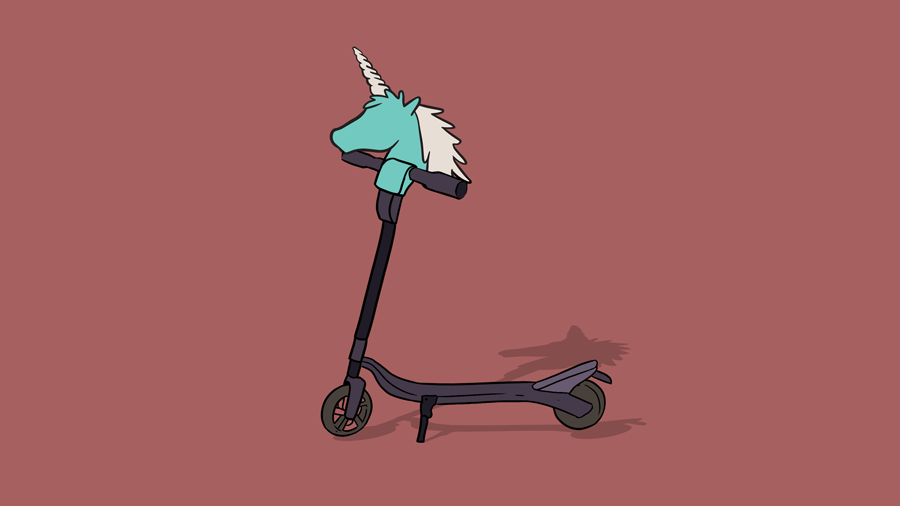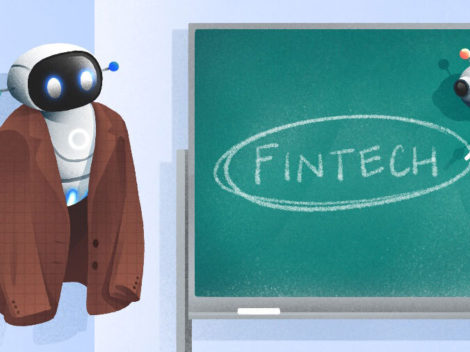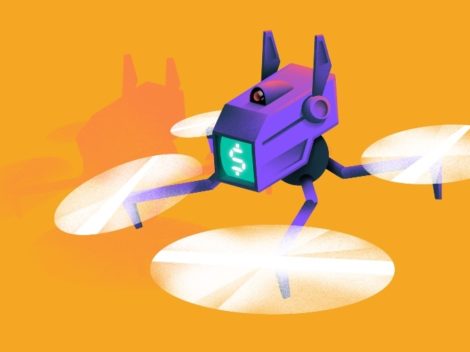The weekend of March 26th, 2018, seemed like any other weekend in San Francisco, that is until adult-sized electric scooters began showing up on every street from FiDi to the Outer Richmond.
When Bird, Lime, and Spin first unleashed their two-wheeled vehicles onto the tech-bro filled streets of San Francisco, it left most residents confused, a few outraged, and some of us enjoying the fact that we now had the “last-mile” excuse to not walk from the bus stop to work.
Of course, the San Francisco city government ousted the companies shortly after their unauthorized debuts, but that didn’t stop them from expanding elsewhere. Now backed by more than $850 million in venture capital, Bird and Lime are leading a pack of scooter startups that have emerged in cities from Santa Monica to Singapore.
But what is to become of these massively-funded companies in 2019? I have a few ideas.
Acquisitions And IPOs
Rumors swirled earlier this month that Uber was toying with the idea of acquiring Lime or Bird.
The space has already seen one acquisition so far. Spin, an early scooter player, was acquired by Ford in November.
To add to this, Uber and Lyft also recently started their own scooter programs. After Lyft launched its self-branded scooters in Santa Monica, Uber, which invested in Lime, launched Jump scooters in Santa Monica earlier this month. Both have expanded their scooter share programs elsewhere, and an acquisition could give the companies a leg up on market share in U.S. cities where other companies already have a presence.
To complicate things, Uber and Lyft are prepping for their public debuts. Uber is targeting a hefty valuation despite significant losses, and it’s likely that the company will not want to add more fuel to that cash-burning fire, especially if the market continues trend towards a correction.
If I had to make a choice, I’d say that Lime would be the acquired company. Of course, they both could die.
Unit Economics And A Market Correction Could Mean The End
Quite a few journalists, including our own Alex Wilhelm, have addressed the unit economics of Bird scooters, after The Information released a report detailing some of Bird’s specific numbers. According to The Information, Bird’s gross margin is just 19 percent. That means for every dollar of revenue the firm brings in from riders, 81 percent of it goes to paying for creating that dollar in revenue. Only 19 percent is left over to help cover Bird’s corporate costs, including rent, and salaries. According to an excellent in-depth report by Inc, Bird declined to state its current margins, but said that “unit economics have ‘dramatically’ improved.” As Alex noted, with ambitions to continue rapid global expansion in the face of competitors, U.S. scooter companies will likely need more venture capital in the bank to keep operating.
But what happens if a correction comes along? It certainly won’t be as easy for Bird, Lime, or other companies to pick up hundreds of millions in capital. The companies likely won’t be able to continue rapid global expansion for long, especially if competition keeps prices low and margins don’t further improve. That would leave the companies toying with other ways to decrease revenue costs.
Another hurdle for the scooter companies is regulation. City residents continue to protest the environmental and dangerous side effects of the program. Even companies like Skip and Scoot, which scored pilot-program contracts with the San Francisco government, continue to contend with safety issues.
In the end, inviting thousands of scooters into a world that is, whether we like it or not, dominated by cars may not pan out the way scooter founders expected. I anticipate that more cities will instate preventative legislation. and that U.S. scooter companies will scale back from global expansion. Further, if the public market continues to struggle, private valuations will follow suit and the companies will have a less than impressive exit or die of capital starvation.
Illustration Credit: Li-Anne Dias

Stay up to date with recent funding rounds, acquisitions, and more with the Crunchbase Daily.



![Illustration of a robot typing on a laptop. Generative AI [Dom Guzman]](https://news.crunchbase.com/wp-content/uploads/generative-ai-v1-470x352.jpg)


![Illustration of "clicking" on an AI brain {Dom Guzman]](https://news.crunchbase.com/wp-content/uploads/AI_Brain-470x352.jpg)
![Illustration of a guy watering plants with a blocked hose - Global [Dom Guzman]](https://news.crunchbase.com/wp-content/uploads/quarterly-global-3-300x168.jpg)
67.1K Followers